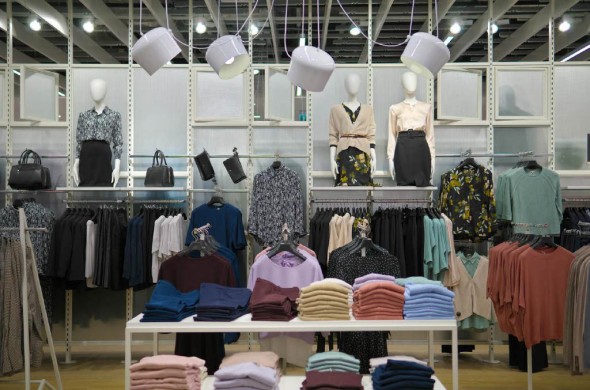Private labels are enjoying a moment in the spotlight. The pandemic has brought with it a spate of panic and bulk-buying as people make efforts to stay in as much as possible, meaning that many branded goods are flying off shelves.
In light of this, people have turned to private label goods instead. Not only are they what’s available, but they’re usually more affordable as well, which suits the current economic climate as people watch their spending due to inflation and a rising number of lost jobs.
It’s clear that private labels are posed to be a huge competitive advantage to companies.
What are private label goods?
Consumer packaged goods are any goods that customers would use up and then replace on a frequent basis.
Private label goods are goods that retailers put their own brand name on and sell, but actually get manufactured by a third-party. To a consumer, they’re that brand’s product, not the third-party’s.
Change in consumer behavior towards private label consumer packaged goods
While consumers may have brand preferences when it comes to purchasing goods, it’s clear that they are definitely willing to overlook a lack of branding when they want a certain good. Internationally, food staples dominated private label growth.
Most of this behavior is due to the issues with availability during the COVID crisis. Certain branded consumer packaged goods were out of stock for weeks on end as manufacturers scrambled to meet the sudden, huge, and unexpected spikes in demand.
With the ongoing economic uncertainty, many consumers continue to prioritize affordability over branding, yet there is no certainty that this won’t change once the economy stabilizes again. This is mostly because many private labels don’t aim to capture long-term customer loyalty. That can definitely change, however.
Latest trends in private label consumer packaged goods
Private label CPGs have historically primarily used price to compete with name brand goods, and yet private label goods’ quality has increased to the extent that they’re now mostly comparable with their name brand counterparts.
In addition to this, consumers have increased awareness of sustainability and ethical concerns when it comes to what they consume, and retailers have made decisions that reflect on these consumer desires. Retailers are making good use of ethical and sustainable labels on the private label goods that they carry, which signals to consumers that their values are shared and valid.
Many retailers are also providing more organic and plant-based private label goods to reflect the trend in consumer demands.
More and more consumers have also been seeking premium private label products – affordable luxuries that can add something extra to their life without costing a fortune. Data has shown that 20% of private label sales growth came from premium products, and consumers buy premium products mainly because they make them feel good and confident, and this upscale merchandise conveys to other people that they have good taste and are successful.
These trends have resulted in a significant number of consumers switching to private label goods with no clear intention of switching back.
Private label branding changes
In the past, private label brand owners didn’t focus much on branding strategies for their private label goods. They simply sourced the products, packaged them, put their logo on, and were done with it. The current trends in customer behavior towards private label goods has provided cause for a change however, and private label brand owners have needed to respond in a way that best benefits their company.
Private label brands have tended to develop their:
- Brand positioning
- Messaging strategy
- Name, logo & tagline
- Content marketing strategy
Their development in these areas has generally looked like:
- Updating the private label brand(s) to reflect the premium experience it can give to the customer.
- Adding more features to their packaging that let the customer know the product is by their brand (e.g. all-green packaging, always having a red ribbon tied on the products, using only a certain font).
- Expanding the private label brand’s product line to introduce new products that show the customer the brand is listening to what they want, as well as capturing new customers (e.g. new sustainable, ethically-sourced, eco-friendly goods, or goods that are X-free, where X could be gluten, soya, GMOs, etc...).
Private label brands are giving increasing attention to their branding in order to attract the right client and encourage the brand perception that they wish to have.
The expansion of private label brand types
Following the branding changes that private label brands displayed, they have also shown that they are increasingly expanding their offerings into different brand types.
They might:
- Have multiple brands under their umbrella that ‘compete’ with each other, for example differently branded bags of frozen vegetables. Here the private label retailer offers multiple versions of the same good under different brands, so that each brand appeals to a different consumer. One may seem more premium than the other, or one might appear more health conscious. This way, the retailer can capture many kinds of consumers while actually selling the same item.
- Extend their brand by increasing their offering of goods, e.g. they begin selling soap when they hadn’t before.
- Create and introduce a whole new brand, i.e. develop and offer a new product line that customers have never seen from them before. This can open up new markets to them or increase their existing market.
Characteristics of a successful consumer goods private label
There are many characteristics that will set a private label apart from others:
- Price – perhaps the most important feature, successful private label goods are always priced competitively so that they are clearly distinguishable from name brand goods.
- Quality – in this case, customers shouldn’t get what they pay for. They’re paying comparatively less than a name brand, but the quality should be equal. No one will be loyal to a brand that doesn’t have high-quality products, no matter how cheap they are.
- Variety – customers enjoy having a selection of consumer packaged goods to choose from. For example, if a private label produces soups, they should have at least 5 different kinds so that they can cater to multiple palettes.
- Premium feel – the rise in popularity of affordable luxuries means that private labels can capitalize on making their CPGs feel luxurious.
- Availability of kits – meal kits as well as other types of kits (like children’s entertainment kits or table deco kits) are popular amongst customers as it provides an experience or item that would otherwise be difficult to create or source from scratch.
- Global choice – the availability of choices from around the world greatly improve private label sales. An example would be a private label providing Indian curry, Japanese miso soup, Scottish cottage pie, and Spanish paella.
- Building on the familiar – this can be as simple as selling flavored cashew nuts. Whatever people already like, a little twist can be added to it.
- Limited-time launches – the timed nature of these launches attracts consumers as it makes them worry about missing out on something potentially great.
- Eco-friendly, sustainable, ethical options – this as consumers become more conscious of what they consume.
- X-free options (health-conscious options) – many private labels have found great success by catering to people with different dietary or health-conscious restrictions.
Benefits of private label consumer goods
Benefits include:
Increased profit margins
Branding can be incredibly costly as well as time-consuming. Private label brands don’t have this issue as it’s the end retailer’s responsibility. The cost of creating private label goods is basically product cost without any marketing or branding costs.
Decreased operating costs
Private label goods have to sell themselves. They don’t require advertising campaigns, and are also usually ordered and shipped in large quantities, reducing shipping costs.
Better brand loyalty
If a private label good has all the characteristics mentioned above, they will enjoy a significant amount of customer loyalty.
Greater market stability
Quality, affordability, and consistency mean that private label CPGs enjoy steady sales.
Reduced competition
Since private label goods aren’t priced according to competitors.
Private labels as a way to win customer loyalty
While private label consumer packaged goods had strategies that worked pre-pandemic, they certainly must update these strategies to compliment the economic climate. They can leverage their unique position to translate consumers’ short-term switches to long-term loyalty.
Some ways to do this are by working on:
- Brand awareness
- Customer perceptions
- Market penetration
- Quality
- Value
- Profitability
Retailers can assess the gap between current and aspirational performance via financial analysis, data analytics, customer surveys, and competitor scans.
How to leverage this information to create competitive company advantages
If private label consumer packaged goods are high quality, affordable, and offer an experience that feels luxurious, they can not only capture but retain a vast array of consumers.
Brands that keep trends in mind and continuously listen to their consumers can create truly competitive company advantages.
We would be glad to provide you with more information on this topic. Get in touch with us today.



